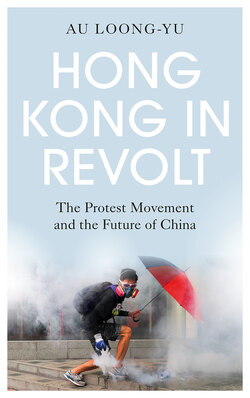Читать книгу Hong Kong in Revolt - Au Loong-Yu - Страница 16
На сайте Литреса книга снята с продажи.
THE BILL THAT TARGETS EVERYONE
ОглавлениеIn early 2018, Chan Tong-kai, a young Hong Kong resident, killed his girlfriend Poon Hiu-wing in Taiwan, before returning to Hong Kong. There is no extradition agreement between Hong Kong and Taiwan, and the pro-Beijing parties pushed for a change to the extradition law in early 2019 so as ‘to bring justice to Poon’. This was unconvincing from the start: local legal experts have repeatedly stressed that the extradition of Chan to Taiwan would not require a bill which includes an extradition agreement with mainland China.
On 12 February 2019, the Hong Kong government tabled the Fugitive Offenders and Mutual Legal Assistance in Criminal Matters Legislation (Amendment) Bill 2019 – commonly known as the extradition bill. Hong Kong has extradition agreements with twenty countries, including the UK and the US, but not with mainland China. The pro-Beijing camp, in Hong Kong and overseas, argued that since Hong Kong has extradition agreements with the West, why could it not have an agreement with mainland China? The issue is with the Chinese legal system. China is not only disdainful of the basic due process of law but also of judicial independence. China’s court system has a near-100 percent conviction rate, while Hong Kong conviction rates in 2017 were 53.4 percent in Magistrates’ Court, 69.2 percent in District Court, and 65.3 percent in The Court of First Instance.8 This reflects the non-independent nature of the judiciary in China. When the extradition bill was first tabled, the pro-Beijing camp fiercely defended it. The opposing camp responded by half-jokingly suggesting that the bill would allow those faced with extradition the choice to be tried either by the Hong Kong courts under British common law or by the mainland courts under Chinese law. Despite their patriotic rhetoric, even the pro-Beijing parties would not opt to be tried by the Chinese courts. This distrust of the Chinese legal system is tacitly recognised by Beijing and codified in Article 8 of the Basic Law, which stipulates that ‘the laws previously in force in Hong Kong . . . shall be maintained’, which means that Hong Kong is insulated from China’s legal system. Without this insulation there is no such thing as Hong Kong autonomy or ‘one country, two systems’. If China’s legal system improved significantly then it would be possible to discuss an extradition agreement with China. But in reality it has gone from bad to worse.
There are people within and outside of China who have argued that the bill’s sole purpose was to send wealthy mainland Chinese who are wanted for corruption back to the mainland to be prosecuted. If this was the case, then the bill should have targeted only mainland Chinese (although that is not what this author would argue for). Since the wording of the bill was that ‘anyone’ in Hong Kong would be subject to extradition, not just corrupt, rich mainland people, it implied that the bill could also target both Hong Kong citizens and foreigners alike. It was a bill which potentially targeted everyone, which is why it was met with great hostility at home and abroad. Actually, one pro-Beijing newspaper in Hong Kong reported on a certain mainland authority’s interpretation – commonly believed to be the vice-premier, Han Zheng – which explicitly included ‘Hong Kong residents’ and ‘foreigners’ as the groups targeted by the bill.9 When confronted by Hong Kong lawmakers as to whether the bill could also target foreign visitors who happened to be in Hong Kong, Secretary for Security John Lee Ka-chiu simply evaded the question.10 It is a reasonable assumption that Beijing’s actions were meant to retaliate against the US for the latter’s pressuring of Canada to arrest Meng Wanzhou, CFO of Huawei. The US Department of State and the European Parliament released statements criticising the bill on 10 June and 18 July, respectively. Germany had already warned that the bill was concerning to the German business community who invested in Hong Kong, and that this might prompt Germany to nullify the extradition agreement between Germany and Hong Kong.11
The most ironic aspect of the issue was that it was the local business class who felt betrayed by Beijing. Mingpao reported that the business class worried about the bill as much as the pan-democrats did, because many of the early transactions which earned them their first buckets of gold in mainland China were ‘shady deals’ and could become easy targets for Chinese prosecutors.12 Their representatives successfully lobbied Beijing to water down the bill by exempting nine categories of commercial crimes from extradition. This was not very satisfying to the business class, because Beijing could still extradite any of them using other pretexts. But their political representatives dared not push further, until the democratic camp, with young people as its radical wing, began to rally over a million people to the streets. Now the stage was set for a great revolt. Only at this moment did the former head of the Liberal Party, James Tien, feel emboldened enough to call for his party to support the shelving of the bill.
